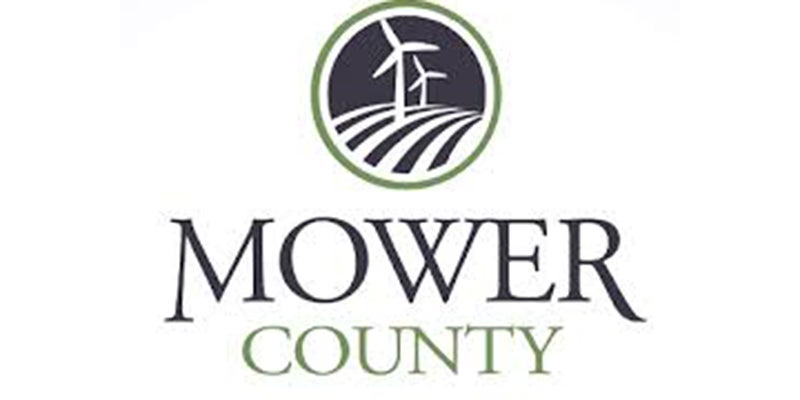County works to hone in 11.5% tax hike
Published 7:46 am Wednesday, November 28, 2012
Board to use reserves for additional relief, but official urges caution
The county board has brought its proposed 2013 tax increase down by about 2.7 percent, and commissioners still have options to further reduce it.
County Coordinator Craig Oscarson outlined a memo for the board Tuesday on the finance committee’s plan to reduce the 2013 tax hike from 11.53 percent to 8.8 percent. The board is still discussing using a portion of the roughly $13.3 million in undesignated reserves to further decrease the county’s looming tax hike.
Commissioner Jerry Reinartz, who sits on the finance committee, said he supports the move.
“We owe it to our citizens of Mower County to levy as little as possible. … I feel that any levy reduction has to include some use of our reserves,” he said.
However, Oscarson urged the board to only do that if it has a firm plan for how to use the reserves, by balancing the budget over the next few years through tax increases or budget cuts.
By the numbers: County Tax increase
11.53% — Tax increase originally proposed in September.
8.8% — Tax increase now after budget cuts.
6.9% — Tax increase if the county uses certain reserves.
Budget changes
Originally, Oscarson noted the finance committee started the budget process with an 18 percent tax increase, but the finance committee said no to many of the department heads’ budget requests, which helped bring the budget down to 11.53 percent.
The finance committee has identified additional budget adjustments to get them down to about 8.8 percent.
About $240,000 of the change came from general fund adjustments, like a $2,500 change in the commissioners’ budget for meals and adjustments, though Oscarson noted the exact savings could change with an altered board in 2013.
The committee is also recommending to reduce the once $682,000 building fund levy to almost half that.
The board will adjust the capital improvement plan to find some savings, and the local $250,000 match of the of the upcoming Oakland Avenue Bridge project will be paid out of a reserve fund in the Public Works Department.
The county will also reduce its reserve contingency budget from $250,000 to $200,000. Oscarson noted the board has been spending $500,000 to $1 million of those reserves every year to cover overages in Human Services for out of home placements, but that shouldn’t happen this year as the board believes it has budgeted properly to stay on budget, which will reduce the need for contingency funds.
Reserves
If commissioners still see 8.8 percent as too big an increase, the board has options to use reserves to bring the levy down more, but Oscarson noted the benefit of such a plan is in the eye of the beholder.
“These could be called budget gimmicks,” he said. “These could be called one-time fixes. These could be called whatever you want. These could be called good budgeting.”
One option is to use $350,000 in excess reserves, but it’s only a one-time fix, according to Oscarson. Using the $350,000 would bring the 2013 tax increase to 6.9 percent, according to county statistics.
Another option is to use and spend down a portion of the county’s $13.3 million in undesignated reserves.
But Oscarson warned using reserves as a budget fix comes with some baggage. He urged the board to be cautious and plan how to use the reserves over time, so they don’t have a “year of reckoning” down the road.
If the board uses $350,000 in reserves to address the 2013 budget, the board would either have to use the same amount of reserves the next year, make cuts or increase taxes to eventually balance the budget.
However, commissioners noted they started this year in a budget hole from using reserves on the 2012 budget.
If the county spends down its reserves, it doesn’t have to pay back that money in following years, but it still has to address annual budget needs. A large, one-time use of reserves could result in a higher than average tax increase the following year.
Commissioner Tim Gabrielson, who sits on the finance committee, said additional cuts could be difficult in coming years, as there are few more areas to cut that won’t be painful, like key services or programs people like.
“We’re getting down where it’s going to be arms and legs to find any more cuts,” he said.
Oscarson recommended a step system where the board will use increments of reserves over the course of at least a few years, so the county can gradually absorb the annual budget needs over time and not all at once.
But if the board does that, it’s committing future boards to use reserves.
‘Be cautious’
If the board decides to use reserves, it will need to do it wisely to avoid mistakes. Without a plan, the board could continually spend down reserves until there are none left, and they could then be facing the problems of the federal government.
“Be cautious if you’re going to start using reserves,” Oscarson said. “Have a plan, otherwise you’re going to become the federal government.”
Along with recently covering budget overages for out of home placements, the county has recently used reserves to cover some unbudgeted needs that come up during the year, and the county is funding its portion of the Government Center and Law Enforcement Center remodel through reserves.
If the county spent down its entire reserve balance, the board would have to borrow money and pay interest to pay bills and salaries before tax returns came in, which Oscarson said has happened in other counties.
Another key concern is the uncertainty with the state and federal budgets, as the county has faced many cuts from these governments in recent years.
That’s even more uncertain now as the federal government faces the looming fiscal cliff, according to Gabrielson.
“We don’t know what’s going to happen,” he said.
The board won’t make a final decision on the levy and whether to use reserves until after the board’s Dec. 6 truth in taxation meeting. However, the board appeared to favor Oscarson’s plan to gradually use reserves over the course of a few years. Even though there are risks to using reserves, Reinartz said, he favors the plan, and Tucker also said he favors using reserves.
“We are fortunate to have a reserve budget, so I think tax payers in the county would appreciate the relief of using some of those reserves,” Tucker said. “Not that we have excess reserves, it’s just that it makes good business right now with the economy and people having different financial burdens.”




